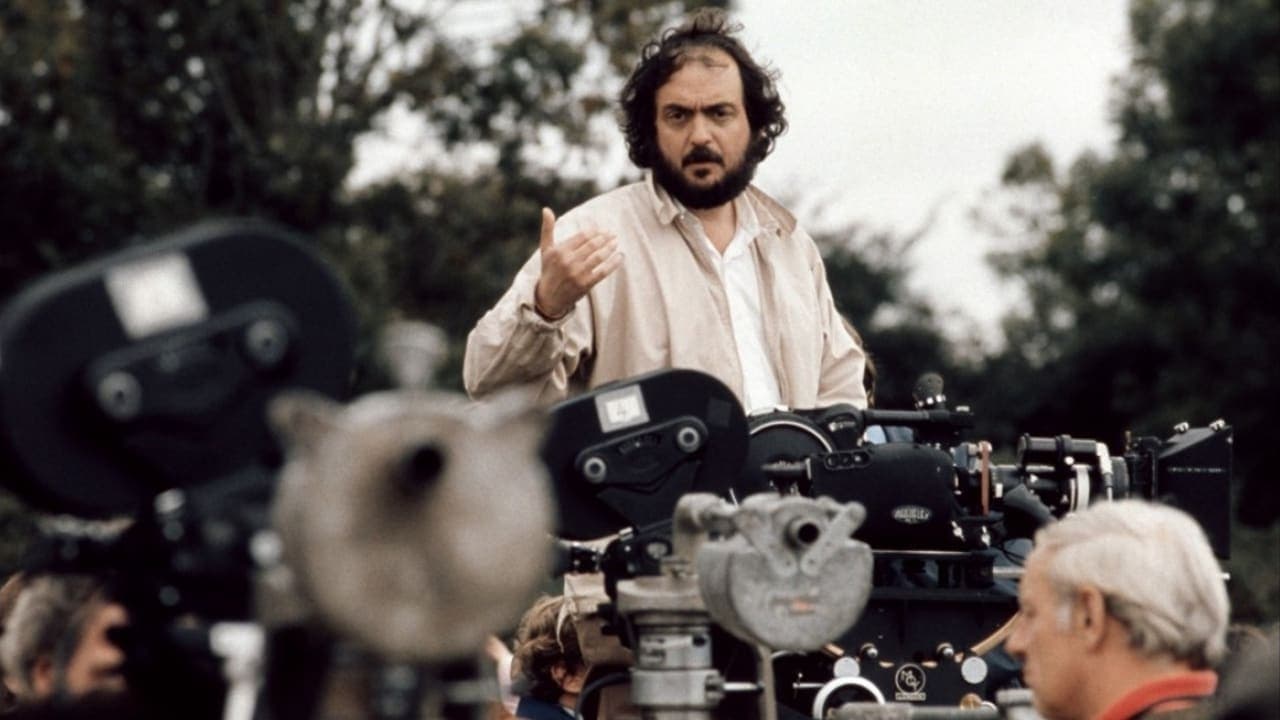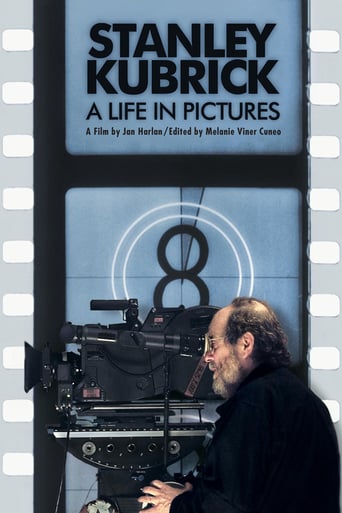

It's a fine, straightforward, and kind biography of film director Stanley Kubrick, from his birth in New York to his death at seventy at his home in Hartfordshire.There are plentiful clips from his movies and many still photos. There are more than a dozen talking heads -- fellow directors, old friends, colleagues, school chums. They all go rather easy on Kubrick. There were some "disagreements" between producer/star Kirk Douglas and Kubrick over "Spartacus." "Disagreements" is a carefully chosen word. Douglas is more candid in his autobiography, "Ragman's Son," in which Kubrick is described as "a talented s***." A head observes that Kubrick was lucky to have had the assistance on "Dr. Strangelove, Or How I Learned To Stop Worrying And Love The Bomb," of two of the funniest and most creative people of the era: Peter Sellers, who was allowed to ad lib while Kubrick kept the cameras running, and Terry Southern, a font of madcap ideas, the writer who gave us "PRE-vert." One of the writers points out that in his maturity Kubrick tended to think of his stories in several independent "unsinkable units," meaning blocks of scenes, and then only later trying to link them together in the narrative. It's most obviously the case in the astonishing "2001: A Space Odyssey," but it's also apparent in later works like "Full Metal Jacket" and sometimes the seams show.It's not usually remarked on but Kubrick's use of music was highly original too. Before "Dr. Strangelove" and "2001," the score was designed to heighten the emotions being displayed. Classical music was used only rarely, and then as a substitute for the usual background. After "Dr. Strangelove" and especially "2001," new vistas opened for the use of music in films. It's almost impossible to imagine "2001" without the Strauss waltz, or the "stargate" sequence without the unnerving white noise of Gyorgi Ligeti. Who had ever heard of Gyorgi Ligeti? Nobody, whereas everyone knows Tchaikovsky and Rachmaninoff, whether they know they know it or not. And of course post-1968 everyone had heard Richard Strauss' "Also Sprach Zarathustra." I remember its being used in TV commercials.Like most of his mature movies, "A Clockwork Orange" was "controversial." I think the word was first applied to "Lolita." Anyway, some of the media vilified Kubrick and his "excremental vision." At several showings there were violent incidents after the film was shown. I'm not sure his vision should be called that but it's certainly true that as he got older there was less humanity in his work. Nothing -- before or after -- equals the scene at the end of "Paths of Glory" in which a frightened young girl inexpertly sings a simple German folk song and in doing so enthralls the raucous audience of doomed French soldiers, so that they stop shouting and begin to quietly hum along with her. I can't watch it without being moved. Following that, his characters become less and less involved with one another, cooler and more distant. Maybe his next hard look at warmth and the doubt that lies behind it is in his last film, "Eyes Wide Shut." There won't be any more Kubrick movies and it's the film world's loss, just as it lost Fellini, Hitchcock, and David Lean. I mention them because flâneurs talked about their work the same way. When is the next Fellini movie? What's David Lean's next picture about? There won't be any more questions about these directors and it's too bad because much of what we see on the screen now is barely fit for human consumption.
... View MoreIf you're a Stanley Kubrick fan like me, you're gonna love to see this. it starts with his first film and moves on to his last. Sure, it's more of a documentary about his films than the person himself, but his films were his life, so they work very well together. What more can I say, it shows his as a genius in film and as a loving father and husband, it simply summarises his life in a very simple and informative way.now to complain, there was a few things I didn't quite understand. They had censored it. Okay, removing the nudity from some of his film i can except, but to bleep the swears? And the funny thing is, they only bleeped one recording of Kubrick yelling at Sjelly Duvall (they had a few arguments, but relax it was nothing sinister), yet all the swears that were featured from "Full Metal Jacket" and "eyes Wide Shut" were not bleeped. And this is not really a complaint, but as mentioned before it is a very simple documentary. I never really felt that they mentioned what made Kubrick such a great director. they treated the matter more like a mystery instead of analysing why. But then again, it's about the man himself, not what he did in detail.My verdict for this bio-documentary is 9/10.
... View More"Stanley Kubrick: A Life In Pictures", is clearly a fine and well done documentary that pays a fine homage and tribute to this legendary master and unique film director. It's narrated by actor Tom Cruise and it starts by showing Stanley's very early beginnings from pictures of him growing up showing his days of school and being with family. Also much historical info is provided by showing how Kubrick done his early films, and it was also nice to learn how that Kubrick had his first job as a photographer for "Look" magazine in which that would inspire him to later direct films. Each of Stanley's films are highlighted in which this doc shows clips and footage and each picture is broken down by very well dead on analysis from the actors who played in them and many film critics and other directors give their take on many of the fine works of Stanley. Rare interviews are provided here in this doc from many that have appeared in Stanley's films like Malcom McDowell, Jack Nicholson, and even Nicole Kidman. From the man who many thought was wrapped in mystery and suspense this documentary brings light and fine info on the very private and compelling Stanley Kubrick it certainly is a tribute and homage to watch. This documentary is a must watch for any Kubrick lover, I think he without a doubt was one of our times better film directors so this is a must watch it's a great visual complement to his films combined with a intimate picture of his personal and professional life.
... View MoreNot a single interview with Stanley Kubrick features in this documentary about him. However the list of collaborators is so long and deep this hardly matters. There are glimpses of him at work on several films while his collaborators describe the experience. The film must have been meticulously researched as there is such a wealth of detail to enjoy. The three scenes that stand out are the excerpt from his first feature film - The Killing; the f/0.7 lens used to shoot Barry Lyndon and the footage of him as a boy at the end of the film. At the end you are left feeling that you have learned so much about Kubrick yet he somehow escapes definition; he remains elusive, mysterious even. An excellent portrait of a brilliant man.
... View More